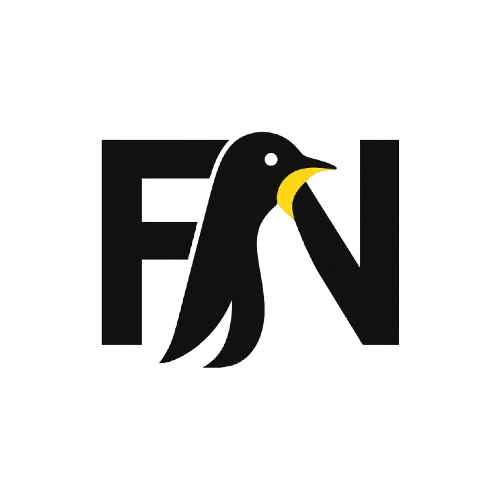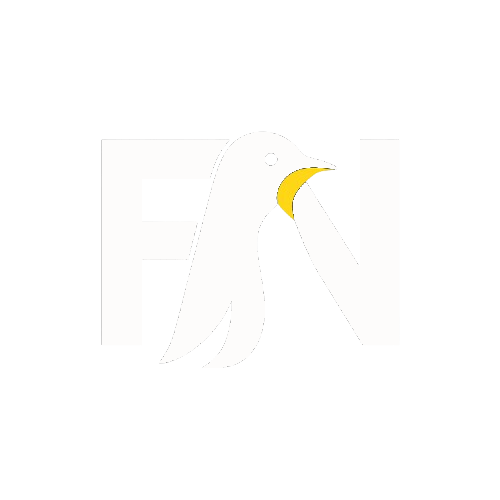Linux is traditionally associated as being an operating system for coders and programmers, but over the years there have been real attempts to make Linux more attractive to general consumers. This is not least due to general consumer dissatisfaction with Windows security issues or even Apple’s walled garden.
However, Linux comes in many different forms, known as ‘flavors’ or ‘distros’. This is simply because Linux is so incredibly configurable that different forms tend to be developed for different userbase needs or interests.
Here are the top 6 Linux Distros [2020 Edition]
Feren OS


Feren OS is a free and open-source operating system with a pseudo-rolling-release nature. It is designed to be stable, more powerful, and more secure. With a new yet familiar user experience now included, it has never been a better time to check out Feren OS. Feren OS gives you a desktop designed to be unique but familiar by default. No matter what major Operating System you come from, Feren OS has a look to get you started with so that you can get working right away on your daily tasks in a familiar environment. Feren OS is a British-made Linux Distribution that is based on Ubuntu, one of the most popular Linux distributions out there and well regarded for rock-solid stability. This means you’ll be able to do more tasks without much of the fuss with Feren OS. This OS is built on the same stable Open Source base and Software that powers every system from the International Space Station to the US Department of Defence. Say goodbye to waiting for updates to install to do your daily work, and say goodbye to being forced into sending your data to others. Feren OS installs updates automatically while you work, meaning you are never interrupted when you are doing your day to day tasks. With these continuous updates, Feren OS receives continuous security fixes and patches, which helps the OS tackle day to day threats.
Read: Basic Linux Commands/Cheat Sheet
Proudly powered by the KDE Plasma Desktop, Feren OS is a relatively lightweight alternative to most Operating Systems in today’s modern world. Designed for modern hardware, Feren OS uses less memory than some of its competitors, and its own past versions.


Solus provides a multitude of experiences that enable you to get the most out of your hardware. From our flagship Budgie experience for modern devices to the more traditional MATE experience for lower-end devices, Solus aims to provide the best experience for your device. Solus ships with a variety of software out of the box so you can get going without a lot of setup fuss. See our selection of default applications below!
- Easily manage all your documents, music, photos, videos, and more with Files.
- We ship with Mozilla Firefox*, a fast and secure web browser.
- Pop some popcorn and sit down to your favorite digital content via GNOME MPV.
- Play and manage your music and podcasts, as well as tune into online radio with Rhythmbox.
- No more hunting around for apps! Install and manage them right from our Software Center.
- Take the hassle out of email by using the simple yet feature-rich Mozilla Thunderbird*.
Endeavour OS


Endeavour OS is offering you an install process with a friendly installer that will set up your system in a headache-free and swift manner.
Endeavour OS is a terminal-centric distro, so we don’t offer you GUI tools out of the box to make your jumpstart easier, instead, we offer you the opportunity to give you full control from the start in creating a system that suits your idea in computing.
This may seem daunting but with our wiki and the help of our very active and friendly community, your endeavour will be an interesting and fun learning experience, and to top it all, you also have an informative online magazine to your disposal, named Discovery.
Stupid questions simply don’t exist with us, we’re happy to help you through your system and the terminal commands from beginning to end in a friendly manner. Once you’ve discovered the endless possibilities the system has to offer, and trust us this comes sooner than you think, your distro-hopping days are a thing of the past.
Endeavour OS offers a variety of eight Desktop Environments and one Window Manager, all of them are shipped with a modest selection of apps and packages to start your journey.
Amongst those are Firefox, a text editor called Nano, Yay a terminal-based wrapper for the AUR to search and install popular apps like Spotify, browsers such as Vivaldi or Brave, and many more apps and packages.
It also ships with the Nvidia-installer that automatically installs the right Nvidia driver for you after you enabled it and our own reflector-auto to help you search for the fastest download mirror near to you.
In-house developed apps
Our in-house developed Welcome app is your reliable assistant to get you in the right direction and you’ll never miss an update with our EndeavourOS update-notifier.
Close to Archlinux
With the exception for our in-house developed reflector-auto, eos-welcome and the eos-update-notifier, all the packages are directly installed from the Arch repos or the AUR, so there are no customized or modified packages coming from our own repo. We want to stay as close to Archlinux as possible.
Desktop Environments
All Desktop Environments in the online installer will be installed without theming and offer the choice to install our wallpaper after install.
Pop!_OS


Pop!_OS is by far my favorite Linux distro. Pop!_OS is designed for fast navigation, easy workspace organization, and fluid, convenient workflow. Your operating system should encourage discovery, not obstruct it. Pop!_OS uses auto-tiling for the same reason that people hire assistants: Organizing your work is incredibly time-consuming. Sure, you could still move, resize, and arrange windows yourself, but why spend the time when your OS does it for you? Auto-tiling helps you be both organized and efficient and is especially convenient on large displays. Develop software out of the box with a vast array of libraries and tools at your disposal. Pop!_OS uses APT and Flatpak package management, meaning it’s easy to install, remove, and update all software on the OS.
Encryption out of the box
Pop!_OS encrypts your installation by default, and is the only Linux distribution that enables pre-installed full-disk encryption out of the box. A unique private encryption key is generated during setup after you receive your computer.
Update on Your Terms
Pop!_OS provides the latest features and security patches through rolling updates and periodic OS version upgrades, to be performed at your discretion. And if you want a clean slate, the Refresh Install feature resets your OS while preserving the files in your Home folder.
Privacy
Pop!_OS does not collect or store any info from user installations. Minimal OS and hardware data is used—not stored—to provide updates and connectivity verification. Apps packaged through Flatpak require permission to access more than what’s needed to function.
Firmware Management
Automatic firmware updates can be accessed from your software settings on System76 hardware. These updates help to promptly quash any threat of security risk to your computer.
Read: Best Code Editors For Linux Users
Manjaro


Is an accessible, friendly, open-source operating system. Providing all the benefits of cutting-edge software combined with a focus on getting started quickly, automated tools to require less manual intervention, and help readily available when needed. Manjaro is suitable for both newcomers and experienced computer users.
Unlike proprietary operating systems, you have full control over your hardware, without restrictions. This makes it ideal for people who want to learn how Linux works and how it is different to other operating systems. From this perspective, it is also suitable for beginners similar to the way an Arduino is an excellent entry-point to embedded hardware development.
It is easily possible to run many popular Windows applications, using compatibility software such as Wine, PlayonLinux or Proton via Steam. The examples given here are far from comprehensive!
Representing a perfect middle-ground for those who want good performance, full control, and cutting-edge software but also a degree of software stability.
Free is better
Manjaro will always be completely free. We create it, so we can have an operating system that is easy to use and stable, you the user, are the main focus, we do not take control away from you and respect your privacy.
Install Anything
There are thousands of software applications available in the software center, including fully compatible equivalents of popular Windows software such as MS Office. Any additional software is also completely free. Searching for applications to install on the internet is not necessary.
Great Community
We have a polite, friendly, and cheerful Forum, where everyone is welcoming and supportive. The forum is the right place to share knowledge and talk about Linux with the community we call it.
Availability
Manjaro is available for 64 Bit architectures. XFCE, KDE, and Gnome editions are officially supported. Other flavors, including editions for 32 Bit architectures are maintained by the community.
Ubuntu


More and more people are delving into the wonderful world of Linux distributions these days, with many users touting them as the future of operating systems. A bold claim for sure but not one without merit. Linux is free, open-source, and constantly evolving to suit the needs of its users, so what’s not to love?
Well, one of the main reasons why so many people are still sticking to Windows and macOS instead of switching to Linux is the learning curve. Linux distros are often seen as difficult to learn and not very user-friendly, however, that’s definitely not the case with all of them. In fact, some of them are quite easy to grasp.
If you’re looking for a distro that’s fairly straightforward yet very powerful your best bet is Ubuntu. Ubuntu OS is one of the most popular distributions out there, not just because of its ease of use but also its versatility. A top favorite of many programmers and developers around the world, Ubuntu is equally suitable as a home or work desktop environment for regular users.
Ubuntu OS Overview
Ubuntu is a Linux distribution based on Debian, which also includes several other popular distros like Deepin OS, Elementary OS, Raspbian, and SteamOS. The operating system is developed and maintained by Canonical and is available in three variants – Desktop, Server, and Core. The last two versions are a bit more specialized so we’re not going to talk about them too much in this article, focusing instead on the all-purpose Desktop edition.
Ubuntu OS gets a new release every six months and is currently at version 19.04 dubbed “Disco Dingo”. Meanwhile, Canonical also puts out LTS (long-term support) releases every two years. These releases benefit from up to five years of free maintenance and security updates from the developers, with an additional five years of support available after that in exchange for a fee.
The current version of Ubuntu uses the GNOME 3 desktop environment by default, a departure from the Canonical-developed Unity graphical interface used up until version 17.10. The Desktop edition of Ubuntu OS has a number of different flavors to choose from. A few noteworthy examples include Kubuntu, Ubuntu Budgie, Ubuntu Kylin, Ubuntu MATE, and Xubuntu.
The difference between these distros is that each of them comes pre-installed with certain sets of packages and updates. If you’re not sure what sort of apps you’ll need or if you’re a first-time user, you should probably just stick to the original Ubuntu OS for the time being.


![Top 6 Linux Distros [2020 Edition]](https://i0.wp.com/fossnoobs.com/wp-content/uploads/2020/09/Top-6-Linux-Distros-2020-Edition-.jpg?resize=750%2C422&ssl=1)






